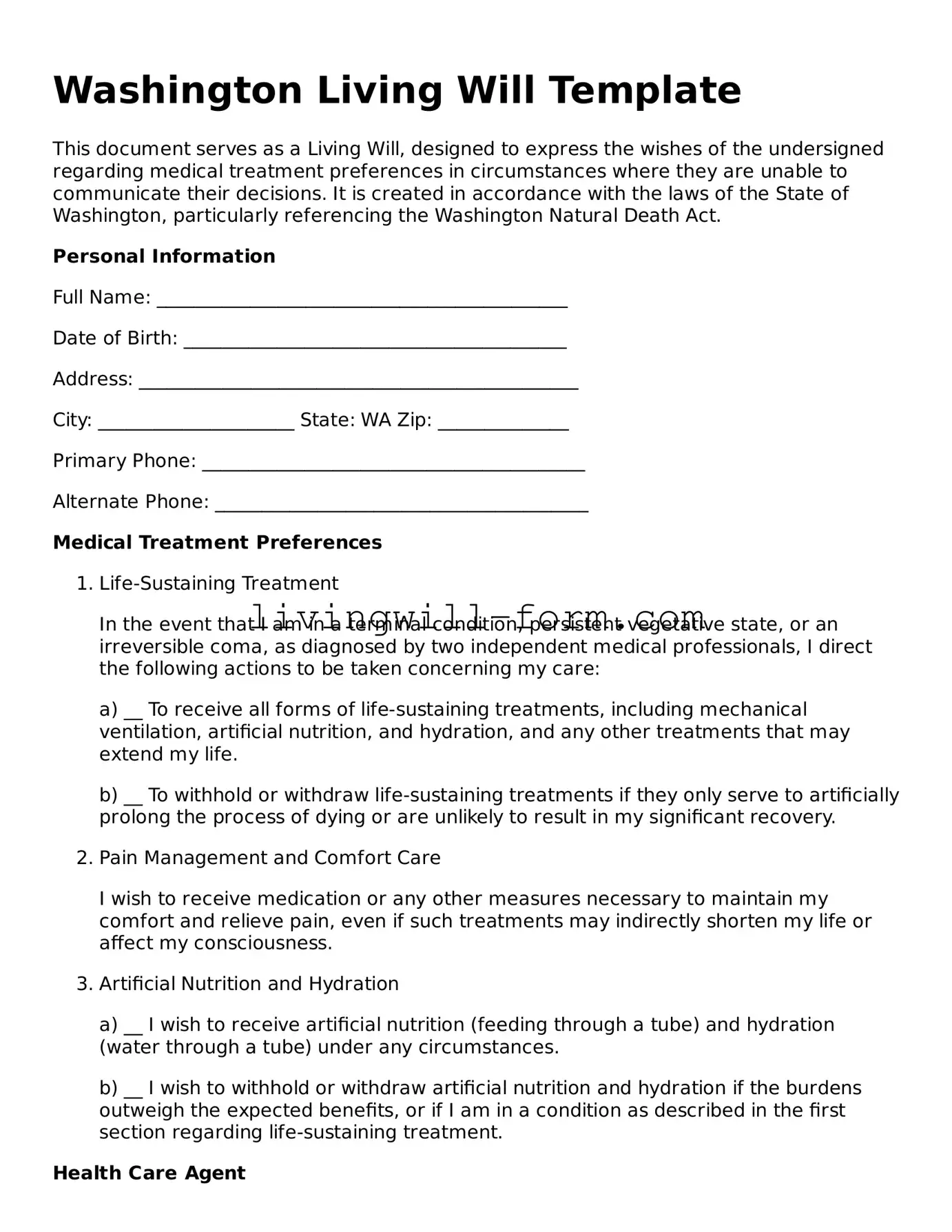What is a Washington Living Will?
A Washington Living Will, also known as an Advance Directive, is a legal document that allows individuals to outline their preferences for medical treatment should they become unable to make decisions for themselves due to incapacitation. This document communicates a person's desires regarding the use of life-sustaining treatments and end-of-life care.
Who should have a Living Will in Washington?
Any adult who wishes to have a say in their health care during a time when they might not be able to communicate their wishes should consider having a Living Will. It's especially important for those with strong feelings about certain medical treatments or end-of-life care.
How can I create a Living Will in Washington?
To create a Living Will in Washington, one must complete the state-specific Advance Directive form. This process involves deciding on your health care preferences, discussing those preferences with family and health care providers, and then documenting them in the form. It's advisable to have the document reviewed by a legal professional to ensure it accurately reflects your wishes and is in compliance with Washington state law.
Does a Washington Living Will require notarization or witnesses?
Yes, once completed, the Living Will must be either notarized or signed in the presence of two qualified witnesses. The witnesses must be adults and cannot be someone who has a claim against your estate, a relative by blood or marriage, or your attending physician.
Can I change or revoke my Living Will?
Yes, you have the right to change or revoke your Washington Living Will at any time, as long as you are of sound mind. To alter the document, you should complete a new Living Will, reflecting your current wishes and follow the same signing and witness or notarization procedures. To revoke it, you can destroy the document, state your wish to revoke verbally to a healthcare provider, or complete a Revocation of Advance Directive form.
What happens if I don't have a Living Will in Washington?
If you don't have a Living Will and become incapacitated, decisions about your health care treatments will typically be made by your closest family members or a court-appointed guardian. This process can sometimes lead to disagreements among loved ones about what you would have wanted, so having a Living Will can provide clarity and peace of mind.
Is a Washington Living Will valid in other states?
While many states have similar laws regarding advance directives, there is no guarantee that a Washington Living Will will be honored in another state. If you spend a lot of time in another state or have residences in more than one state, it's wise to have a Living Will that complies with each state’s regulations.
What should I do with my completed Living Will?
After completing your Living Will, you should keep the original in a safe but accessible place. Provide copies to your health care agent (if you have appointed one), primary physician, and close family members. You might also want to keep a digital copy stored securely online where it can be accessed by your healthcare provider if necessary.
Does a Living Will cover mental health treatment decisions?
In Washington, a Living Will primarily focuses on end-of-life decisions related to physical health. If you wish to outline preferences for mental health treatments, you may consider creating a Mental Health Advance Directive, a separate document that allows you to express your wishes concerning mental health treatment.
How does a Living Will differ from a Power of Attorney?
A Living Will articulates your wishes for medical treatment and end-of-life care. In contrast, a Durable Power of Attorney for Health Care appoints someone else to make health care decisions for you, should you become unable to do so. Both documents can work together to ensure that your health care preferences are known and respected.

